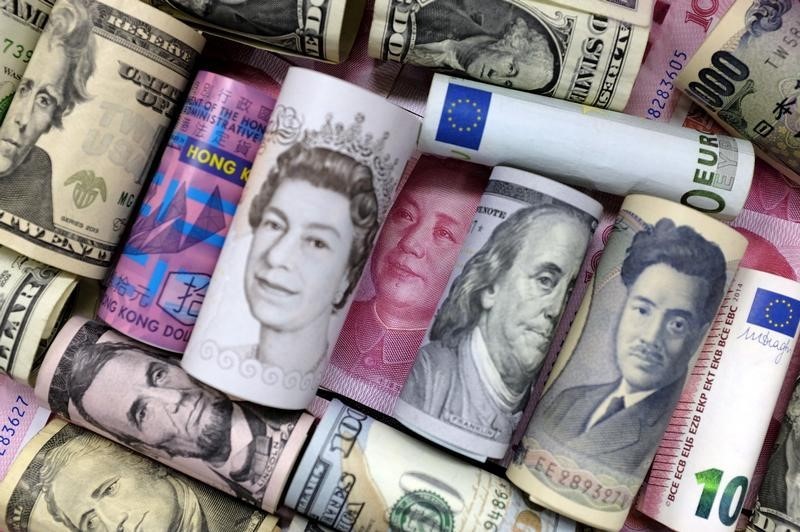Moody’s downgrades Senegal to Caa1 amid rising debt concerns
* Virus spreading, but WHO supports China's response
* Aussie halts slide, but set for worst month in almost 4
years
* Authorities investigate pound jump ahead of BOE decision
* Graphic: World FX rates in 2020 https://tmsnrt.rs/2RBWI5E
By Tom Westbrook
SINGAPORE, Jan 31 (Reuters) - Asian currencies steadied
their slide on Friday, as World Health Organization confidence
in China's response to a rapidly-spreading new virus tempered
worries over a jump in infections.
The WHO said late Thursday that the coronavirus outbreak was
a global emergency, but opposed travel restrictions and said
China's actions so far will "reverse the tide" of its spread.
Despite an increase in deaths and new cases, the WHO's
assured tone was enough to pause a rush to safety that has for
two weeks pounded stocks and hammered currencies and commodities
exposed to China.
The death toll in China has now reached 213 and the number
of cases is 9,692 - up from 7,711 a day ago. It has spread to 18
countries. The U.S. has warned citizens against visiting China.
Antipodean currencies, which have borne the brunt of selling
among the majors, were soft but steady by the Asian afternoon.
The New Zealand dollar NZD=D3 was 0.1% weaker and touched
a two-month low of $0.6479. The Australian dollar AUD=D3 , at
$0.6720, was just above a four-month low hit overnight.
Both have shed more than 1.5% this week and the Aussie has
dropped 4.3% this month, leaving it poised for its worst month
since May 2016.
"Aussie and kiwi are what I've called the whipping boys, if
you like, for expressing concern about the spreading of the
virus and its potential global economic ramifications," said Ray
Attrill, Head of FX Strategy at National Australia Bank.
The beneficiaries have been the dollar and the yen.
The yen JPY= was steady at 109.06 per dollar and the
greenback a tad stronger at $1.1023 per euro EUR= on Friday.
The yen has added 3.2% against the Aussie in the 10 days
since concerns about the virus began roiling markets AUDJPY= .
Against the Korean won, the yen has gained nearly 4% KRWJPY=R
amid a broad exit from emerging markets' currencies.
In Thailand - heavily exposed to Chinese tourism - the baht,
which has stubbornly resisted months of jawboning and policy
easing from the central bank, has shed 4% for the month.
Investors are waiting for details about the virus itself,
and for signs of a slowdown in its spread in order to judge its
likely human and economic costs.
In the absence of that information, many are looking to the
experience of the Severe Acute Respiratory Syndrome (SARS)
outbreak in 2002-2003 for guidance.
This time, however, the number of cases has already exceeded
the 8,000 logged during the SARS crisis, the official response
has been far more drastic and China's share of the world's
economy is four times larger.
Some 60 million people in the epicentre of the outbreak,
Hubei province, are living under virtual lockdown. Several
global airlines have stopped flying to mainland China and
economists are slashing their forecasts for Chinese growth.
"We think the impact will be particularly frontloaded and
likely larger than that of the SARS outbreak," BNP Paribas
economists said in a note warning that the current quarter's
year-on-year growth figure in China could come in below 5%.
"We do not know exactly how the situation will evolve over
the coming days, weeks and months and therefore what the
duration of the shock will be.
"The risks appear skewed to the downside, with scope for
potentially harmful mutations of the virus due to a large (and
rising) number of infected individuals."
Separately, relief the Bank of England held rates steady
sent the British pound GBP= up 0.7% to a week high. Britain's
market watchdog, however, is investigating the move because it
began just before the bank's announcement.
